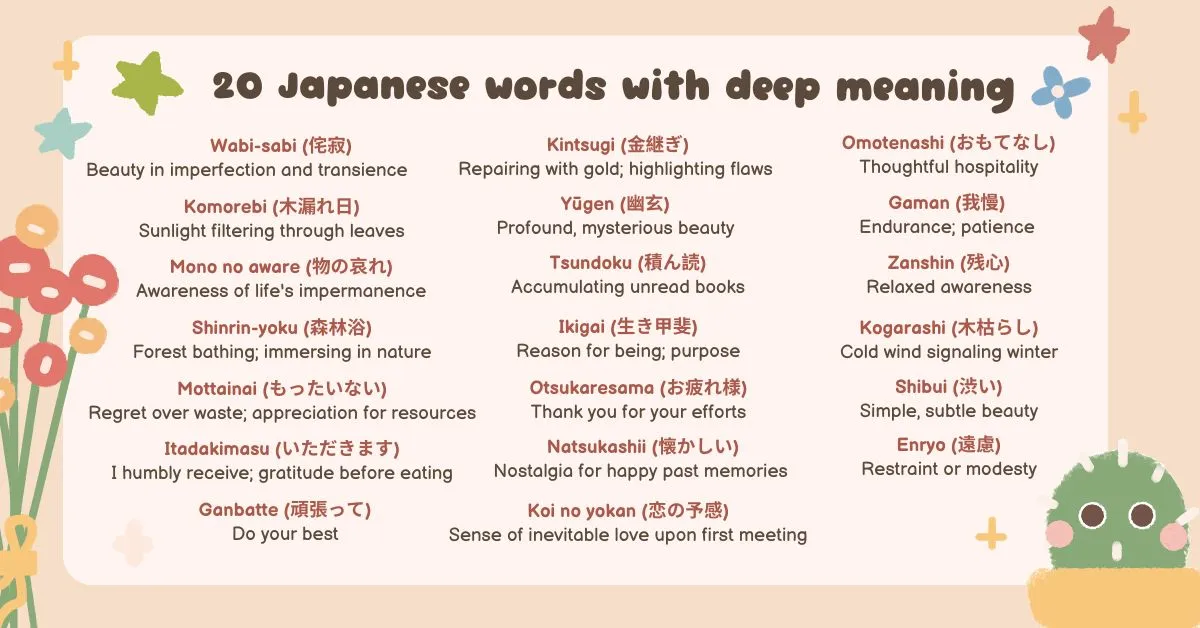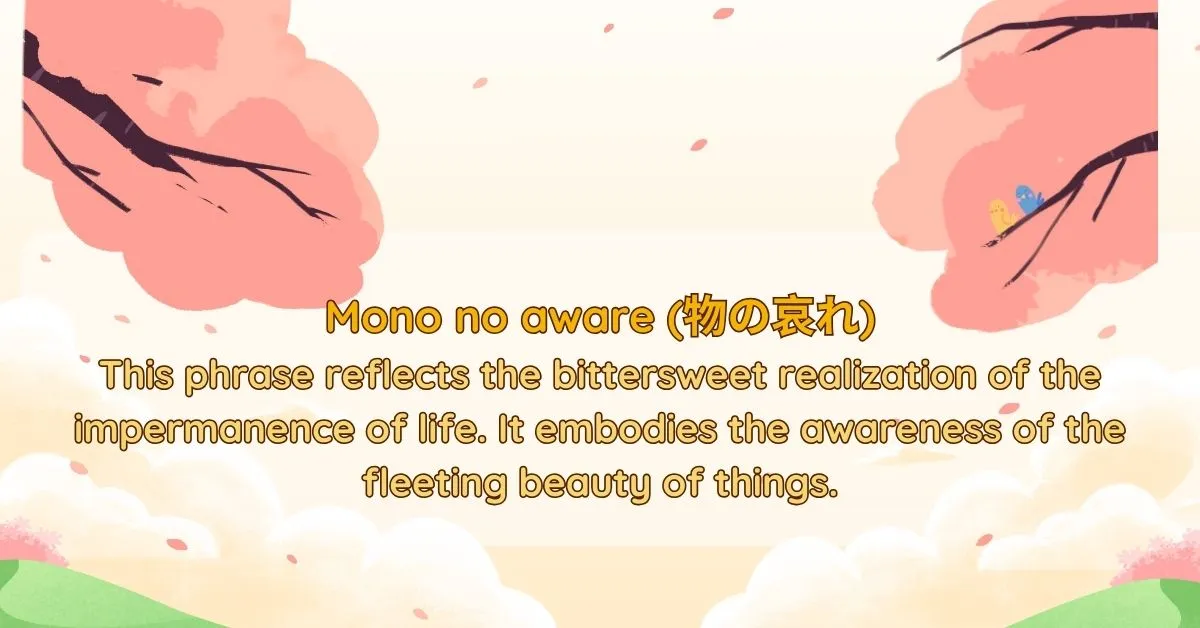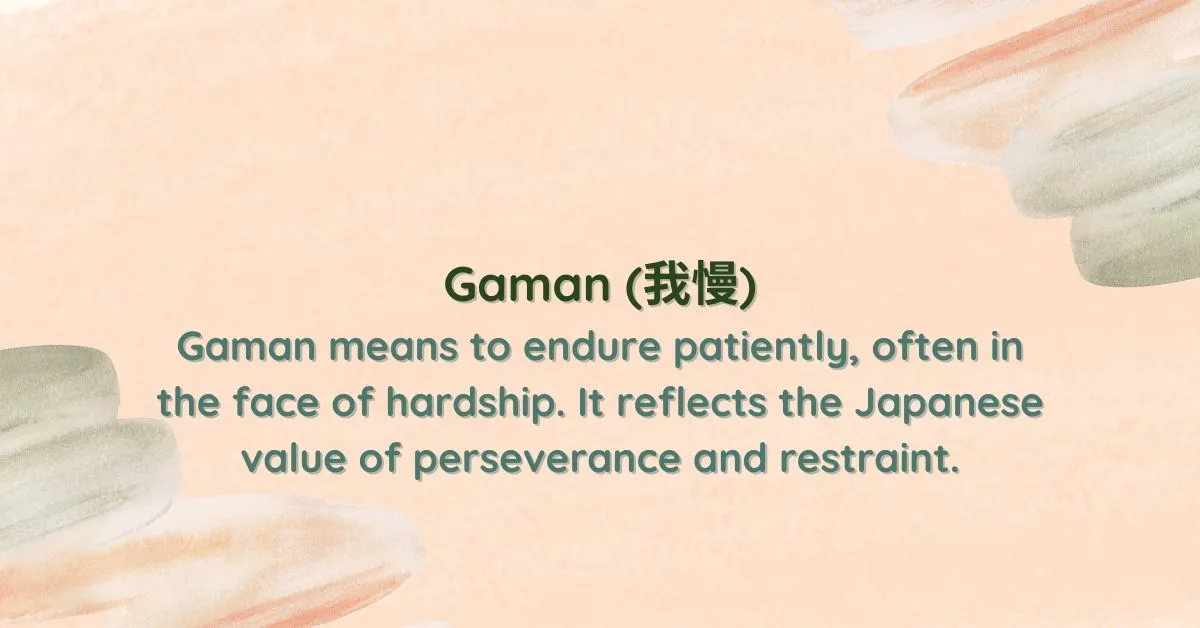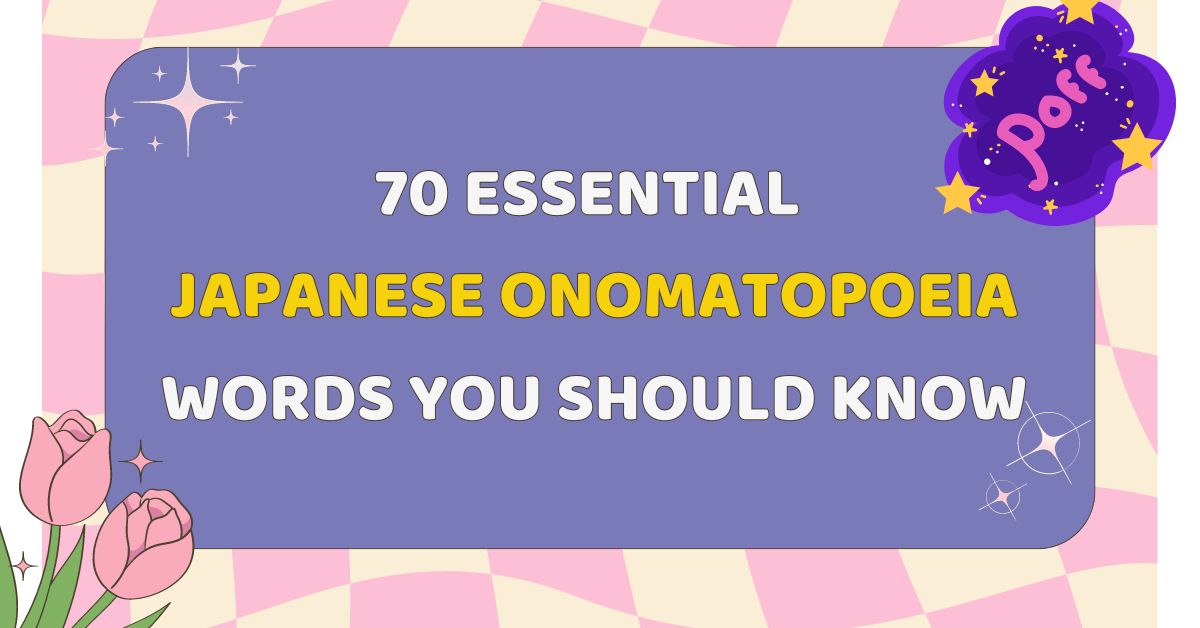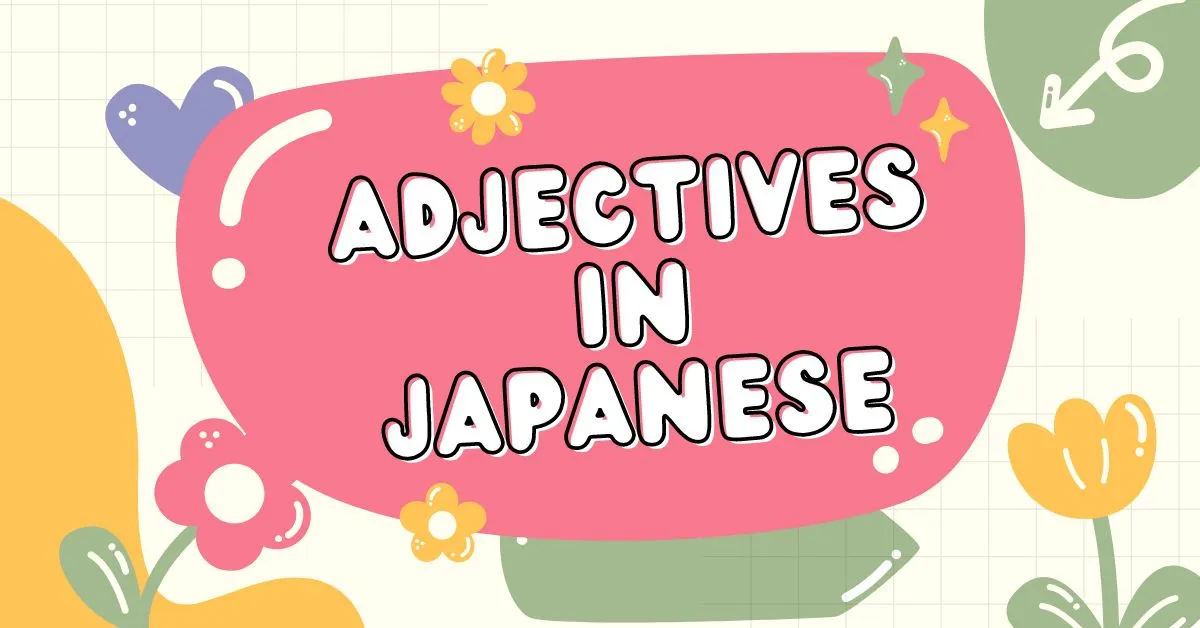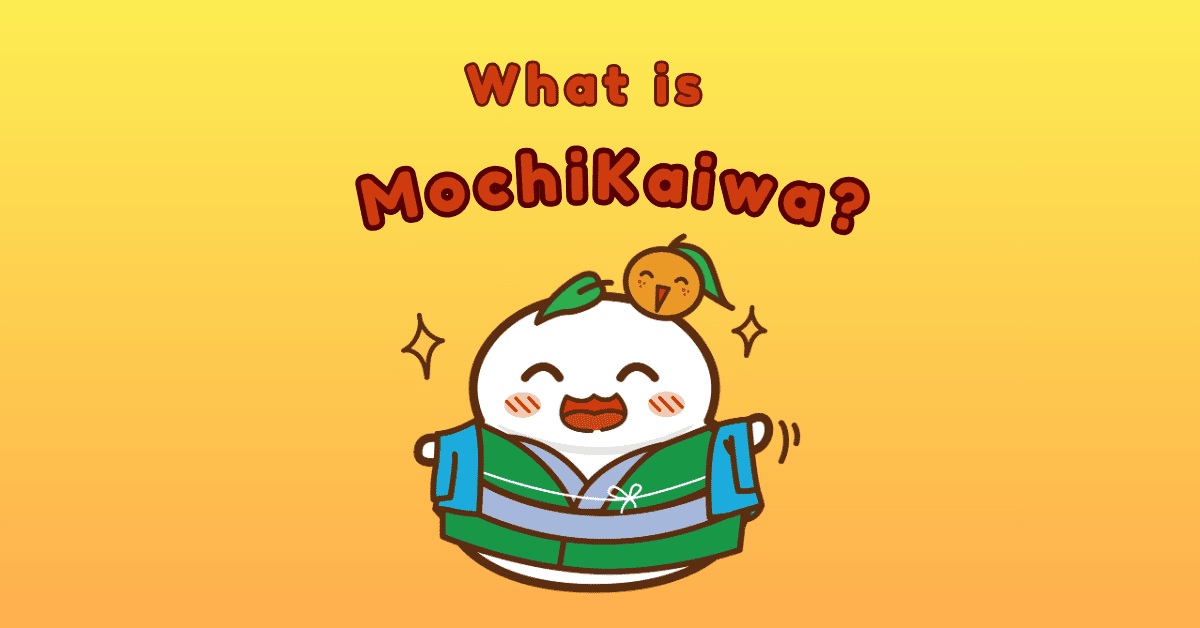The Japanese language is renowned for its poetic beauty and cultural depth. Many Japanese words with deep meaning convey complex ideas and emotions in just a few syllables. This article explores 20 such words, offering a glimpse into Japan’s culture, values, and worldview..
- 20 Japanese words with deep meaning
- How to learn Kanji and Japanese words fast and effectively with MochiKanji
- Conclusion

20 Japanese words with deep meaning
1. Wabisabi (侘寂)
Wabisabi refers to the beauty found in imperfection and transience. It celebrates the idea that nothing lasts, nothing is perfect, and nothing is finished.
Example: Admiring an old teacup with a crack, appreciating its history and beauty despite its flaw.
2. Komorebi (木漏れ日)
Komorebi describes the sunlight filtering through the leaves of trees. It captures the interplay of light and nature in a deeply poetic way.
Example: Walking through a forest in the morning, enjoying the dappled sunlight on the ground.
3. Mono no aware (物の哀れ)
This phrase reflects the bittersweet realization of the impermanence of life. It embodies the awareness of the fleeting beauty of things.
Example: Watching cherry blossoms fall and feeling a sense of beauty mixed with sadness.
4. Shinrinyoku (森林浴)
Shinrinyoku means “forest bathing,” a practice of immersing oneself in nature to rejuvenate the mind and body.
Example: Spending a weekend hiking in the woods to escape the stress of city life.
5. Ganbatte (頑張って)
Ganbatte means “do your best” or “persevere.” It’s a word of encouragement to keep going, no matter the obstacles.
Example: A friend telling you “Ganbatte!” before a big exam.
6. Itadakimasu (いただきます)
Itadakimasu is said before eating and means “I humbly receive.” It reflects gratitude for the food and the effort that went into making it.
Example: Saying “Itadakimasu” before a family meal to show respect for the food and its source.
7. Mottainai (勿体無い)
Mottainai expresses regret over waste and encourages a sense of appreciation for resources, whether it be food, time, or material things.
Example: Throwing away leftover food and feeling a sense of wastefulness.
8. Kintsugi (金継ぎ)
Kintsugi is the art of repairing broken pottery with gold, highlighting the cracks rather than hiding them. It symbolizes embracing flaws as part of the history of an object.
Example: A broken vase mended with gold, making it even more beautiful than before.
9. Yuugen (幽玄)
Yuugen refers to a profound, mysterious sense of the beauty of the universe. It is the emotion felt when observing something beyond comprehension.
Example: Gazing at a starry night sky, feeling small yet connected to the vastness of the universe.
10. Tsundoku (積ん読)
Tsundoku refers to the habit of buying books and letting them pile up, unread. It reflects both a love for knowledge and the overwhelming nature of time.
Example: A stack of unread books on your shelf, waiting for the perfect moment to be opened.
11. Ikigai (生き甲斐)
Ikigai means “reason for being” and refers to the things that make life worthwhile. It’s often used to describe one’s passion or purpose.
Example: Finding joy in painting every day, knowing it’s your ikigai.
12. Otsukaresama (お疲れ様)
This phrase is often said after hard work, meaning “thank you for your efforts.” It shows appreciation for the labor and dedication of others.
Example: A boss telling their team “Otsukaresama” after a long project is completed.
13. Natsukashii (懐かしい)
Natsukashii is a feeling of nostalgia for something in the past that brought happiness. It captures a longing for cherished memories.
Example: Listening to an old song from your childhood and feeling a warm sense of nostalgia.
14. Gaman (我慢)
Gaman means to endure patiently, often in the face of hardship. It reflects the Japanese value of perseverance and restraint.
Example: Remaining calm and composed during a challenging situation at work.
15. Omotenashi (お持てなし)
Omotenashi represents Japanese hospitality, focusing on selfless and thoughtful service to ensure the guest’s comfort.
Example: A hotel staff going out of their way to ensure your stay is perfect, anticipating your needs before you even ask.
16. Koi no yokan (恋の予感)
Koi no yokan refers to the feeling upon first meeting someone that you will inevitably fall in love with them. It’s deeper than love at first sight, suggesting destiny.
Example: Meeting someone at a party and sensing that you are meant to be together.
17. Zanshin (残心)
Zanshin refers to a state of relaxed awareness, particularly in martial arts. It’s the idea of staying mentally and physically prepared for anything.
Example: Remaining focused and calm after successfully completing a task, staying ready for the next challenge.
18. Kogarashi (木枯らし)
Kogarashi is the cold wind that signals the arrival of winter. It’s a poetic way to describe the change in seasons and the inevitable transition of time.
Example: Feeling the sharp chill of the wind and knowing winter has arrived.
19. Shibui (渋い)
Shibui describes a simple, subtle, and unobtrusive beauty. It reflects a taste for things that are understated and refined.
Example: A plain but elegant piece of pottery that gains beauty over time.
20. Enryo (遠慮)
Enryo is the concept of restraint or modesty, often practiced to avoid imposing on others. It’s deeply embedded in Japanese manners and etiquette.
Example: Politely refusing an offer out of respect, even if you might want to accept it.
How to learn Kanji and Japanese words fast and effectively with MochiKanji

To master kanji and Japanese vocabulary, regular practice is essential. If you’re seeking an effective and enjoyable way to enhance your studies, MochiKanji is an excellent choice. With its spaced repetition system, it helps you memorize kanji and vocabulary efficiently. Plus, its user-friendly interface and engaging learning methods make it easier to grasp those deep, meaningful words.
Conclusion
These 20 Japanese words with deep meanings offer a window into the unique perspectives that shape Japanese culture and philosophy. Each word carries not just a literal translation but a wealth of cultural significance, encouraging us to reflect on how we see the world and our place within it. By understanding these terms, we can appreciate the subtle, profound ways the Japanese language connects thought, nature, and emotion.
FAQs
What are some cool Japanese words and meanings?
Tsundoku (積ん読): Refers to the act of acquiring books and letting them pile up, without reading them.
Komorebi (木漏れ日): Describes the sunlight filtering through the leaves of trees.
Wabisabi (侘寂): Refers to the appreciation of beauty in imperfection, transience, and the natural cycle of growth and decay.
What is a single Japanese word with powerful meaning?
A word with truly powerful meaning is Ikigai (生き甲斐). This term represents “a reason for being” or “the thing that makes life worth living.” It’s more than just a purpose; it’s the intersection of what you’re good at, what you love, and what the world needs. The concept of ikigai encourages a balanced life and deep fulfillment, making it a central idea in many people’s lives in Japan.
What Japanese word has a deep meaning about love?
When it comes to love, Aishiteru (愛してる) is the most direct and powerful way to say “I love you.” Unlike its Western counterpart, it’s not casually used. It conveys deep, unconditional affection, often reserved for serious romantic relationships or family. Another word related to love is Koi (恋), which refers to romantic love, often the passionate and intense feelings you have in the early stages of a relationship. It’s more about longing and desire, compared to the more enduring love described by Aishiteru.
What Japanese word means eternal?
The word Eien (永遠) means “eternal” or “forever.” It’s often used to describe something lasting an infinite amount of time, like eternal love or an everlasting promise. It conveys a sense of timelessness and unending continuity, making it a powerful word in both literature and everyday conversation.

